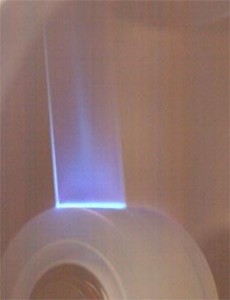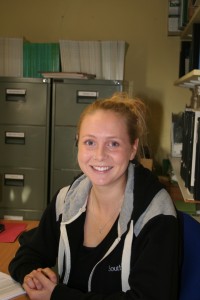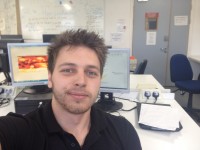Blog
Fatigue and attention 1 (2015)
August 11, 2015
by James Nellis
Part of the EPSRC Vacation Bursaries Scheme 2015
Student name: James Nellis
Student degree course: Psychology
Year of study: End of 2nd year
Supervisor: Tamaryn Menneer
Vacation Bursary Research project title: Fatigue and attention 1 (2015)
Tell us a bit about you and your chosen research field:
I’m going into my 3rd year of study for Psychology at the University of Southampton. I’m currently undertaking a ten-week placement focusing on the correct handling, utilization and deployment of eye tracking equipment to study visual search tasks.
Warming, Acidification and Sea-level Projector Android Platform
August 6, 2015
by Callum Spawforth
Part of the EPSRC Vacation Bursaries Scheme 2015
Student Name: Callum Spawforth
Student Degree Course: MEng Computer Science
Year of Study: 3
Supervisors: Prof. Alex Rogers
Vacation Bursary Project Title: Warming, Acidification and Sea-level Projector Android Platform
Tell us a bit about you and your chosen research field
I’ve just completed my second year studying Computer Science with Distributed Systems. Digital technology is already ubiquitous in most people’s lives, and I am enthusiastic about its potential to completely change the way people interact with and perceive the world. As part of an internship, I’m working with the Agents, Interaction and Complexity (AIC) research group in the Electronics and Computer Science (ECS) department. We’re aiming transform a sophisticated climate model into an application to allow people to perceive the impact of global CO2 emissions on the climate.
Seasonal prediction of storminess and coastal flooding
August 4, 2015
by Jesse Marshall
Part of the EPSRC Vacation Bursaries Scheme 2015
Student name: Jesse Marshall
Student degree course: MSci Oceanography
Year of study: 4
Supervisors: Dr Ivan Haigh (NOCS) and Dr Jeremy Grist (NERC)
Vacation Bursary Research project title: Seasonal prediction of storminess and coastal flooding
Tell us a bit about you and your chosen research field:
My interest in the ocean, and how it affects human populations through severe weather events, stems from growing up on the small island of Bermuda and its susceptibility to hurricanes. This project gives me the unique opportunity to invest half of my master’s year into an area of research that fascinates and holds much personal significance to me. With the observed trends in rising sea levels coupled with increasing global temperatures and greater occurrence of storm surge events, the importance of more analysis of storm surge events has never been greater.
Time of emergence of changes in climate variability in an Earth System Model
August 4, 2015
by Maxime Jullian
Part of the EPSRC Vacation Bursaries Scheme 2015
Student name: Maxime Jullian
Student degree course: BSc Oceanography
Year of study: 3rd Year (starting September 2015)
Supervisor: Dr Claudie Beaulieu
Vacation Bursary Research project title: “Time of emergence of changes in climate variability in an Earth System Model”.
Tell us a bit about you and your chosen research field:
I am an Oceanography student who is looking to specialise, during my university studies, in Physical Oceanography and Atmospheric sciences, looking at future changes in climate variability in an Earth System Model. And that is exactly the research field that I have tried to get involved with this summer 2015. Luckily I have found Dr Claudie Beaulieu, expert in climate statistics, to supervise me throughout this project. This research area is all new to me and technically challenging, using UNIX and MATLAB programming -which I am learning at the same time through Coursera online courses.
Optical characterisation of semiconductor nanostructures for sensing applications
August 4, 2015
by Benjamin Burridge
Part of the EPSRC Vacation Bursaries Scheme 2015
Student name: Ben Burridge
Student degree course: Master of Physics
Year of study: 2
Supervisor: Luca Sapienza
Vacation Bursary Research project title: Optical characterisation of semiconductor nanostructures for sensing applications
Tell us a bit about you and your chosen research field:
I’m heading into my third year at the University of Southampton and I am thoroughly enjoying my time here so far. The optional modules that I picked were of great interest to me, and helped me to choose the research field for this project. These included “Introduction to Photonics” and “Introduction to the Nanoworld”. These modules both had a Quantum basis, and helped engage my interest in Physics at the nanoscale. I chose to invest my time this summer, in the field of Quantum Optics. This involves the optical characterisation of (colloidal) quantum dots deposited on a nanophotonic device. These dots are on the size of ~10nm, and can be used in the field of Quantum Information. They can potentially contribute to a new way of encrypting data using Quantum Mechanics.
Sensory perception and vibration: decline in proprioceptive function with age
August 4, 2015
by Devon Lewis
Part of the EPSRC Vacation Bursaries Scheme 2015
Student name: Devon Lewis
Student degree course: BSc Biology
Year of study: 3
Supervisor: Prof Phil Newland and Dr Emiliano Rustighi
Vacation Bursary Research project title: Sensory perception and vibration: decline in proprioceptive function with age
Tell us a bit about you and your chosen research field:
I have just finished my second year of the BSc Biology course in Southampton. I’m really interested in going into neuroscience research with sensory perception being my main focus. Working in the electrophysiology labs has been a great way to gain experience and talk to people with similar interests who are currently working in the field.
Human Element and the Costa Concordia
August 4, 2015
by Andrew Clarke
Part of the EPSRC Vacation Bursaries Scheme 2015
Student Name: Andrew Clarke
Student Degree Course: Ship Science
Year of Study: 2nd Year
Supervisor: Dr Dominic Taunton
Project Title: Human Element and the Costa Concordia
In this last year as a part 2 Ship Science student I studied a number of design modules, one of which looked at the functional design of a simple cargo vessel. In this module I used the knowledge obtained from my degree up to this point to create a working design of a vessel. This highlighted how hard it is to design a living and working space for crew and passengers on the ship. While there is some basic regulation already for the size and condition of the space onboard vessels for crew there seemed a small amount when compared to other industries. This is where the research of the human element in design gives more detail about how to design a vessel for the crew to work more effectively with the ship.
Interaction of the HHC-36 Peptide with Model Membranes
August 4, 2015
by Alister Boags
Part of the EPSRC Vacation Bursaries scheme 2015
Student name: Alister Boags
Student degree course: Chemistry (MChem in House)
Year of study: 3rd
Supervisor: Dr. Syma Khalid
Vacation Bursary Research project title: Interaction of the HHC-36 Peptide with Model Membranes
Tell us a bit about you and your chosen research field:
Hi, I’m an undergraduate chemistry student, having just completed third year, I’ve decided to take up a ten week research project in computational chemistry, specifically in the area of Molecular Dynamics (MD), which consists of simulations of physical movements of atoms and molecules within a given volume allowing the trajectories of the atoms and molecules to be observed, specifically in my case utilising the MARTINI force field for coarse grained models. Running simulations in this fashion is advantageous due to the fact that one can see the whole trajectory of their subject of study, as an example the interaction of a cell membrane with a protein, whilst reducing the resources required in doing so as groups of similar atoms are represented as ‘pseudo-atoms’ vastly reducing the number of particles in the system. Uses of this field are to examine the interaction between molecules and bacterial or animal model membranes, as an example the various phases that a model animal membrane may adopt depending upon the water content of the surrounding environment.
Sticky tape X-ray generator
July 23, 2015
by Henry Smith
Part of the EPSRC Vacation Bursaries Scheme 2015
Student name: Edward Briggs and Henry Smith
Student degree course: MChem (Chemistry)
Year of study: End of 2nd year
Supervisor: Jeremy Frey
Vacation Bursary Research project title: Sticky tape X-ray generator
Tell us a bit about you and your chosen research field:
We are both going into our 3rd year of study and both have a specific interest in physical chemistry, the project involves working as a pair alongside the rest of the Frey research group to explore more about the strange phenomena of triboluminescence which is responsible for the generation of photons via peeling sellotape, this effect also happens when sugar cubes are crushed.
Tell us about your specific research project:
The aim of the project is to unravel sellotape in a vacuum and analyse the results. It has been widely reported that when tape is unravelled at moderate speeds photons of high energy including X-rays are emitted (but only when in a vacuum). It has also been previously documented that at atmospheric pressure a blue glow is observed. We will be exploring these effects fully by adding to a group of engineer’s work which was completed as part of their masters.
Using Lego we are to create a motor to dispense the tape at various speeds and image these phenomena. Ultimately, once completed this experiment will be used in outreach programs by the chemistry department at the university as well as (hopefully) gaining a better understand of this effect.
 Describe any future plans regarding on-going study/postgraduate research connected to your Vacation Bursary project:
Describe any future plans regarding on-going study/postgraduate research connected to your Vacation Bursary project:
We are both doing a 4 year course including a 6 month placement, and must undergo a research project next year. The research project takes place throughout the whole year with the possibility to continue on our current project. The 6 month placement can be in industry or academia and there are a range of physical chemistry placements to apply for.
Socioeconomic correlates of the planet’s key ecosystem services
July 22, 2015
by Sophie Watts
Part of the EPSRC Vacation Bursaries Scheme 2015
Student name: Sophie Watts
Student degree course: BSc Biology
Year of study: 3
Supervisor: Dr Simon Willcock, Dr Kelvin Peh and Dr Marije Schaafsma
Vacation Bursary Research project title: Socioeconomic correlates of the planet’s key ecosystem services
 Tell us a bit about you and your chosen research field:
Tell us a bit about you and your chosen research field:
I have studied two years of Biology at Southampton and have completed placement with the Game and Wildlife Conservation Trust (GWCT) using Geographic Information Systems (GIS) and carrying out wildlife conservation fieldwork. My main passion lies within the conservation and environment branches of Biology, and this internship will involve a level of data handling and analysis above and beyond anything I have done before, while still being relevant to my personal interests.
Tell us about your specific research project: The overall research project is linked with four on-going projects (ARIES, ASSETS, TESSA and WISER) that aims to investigate the links between health, development and ecosystem services on a global scale. In order to achieve these aims there are three subprojects that I am working on:
- Ecosystem Services and Development
- Ecosystem Services and Health
- Socioeconomic correlates of non-timber forest product utilisation
Within each subproject there is an element of data handling followed by analysis using software such as ArcGIS, Microsoft Access and R, the latter two I have not used before and I am keen to develop these as skills. Within this project there is an opportunity for me to assist in report writing which would improve my scientific writing and be useful for future research reports including but not limited to my third year dissertation.
Describe any future plans regarding on-going study/postgraduate research connected to your Vacation Bursary project:
This project has highlighted to me the importance of effective data management systems and in the next academic year I will study the Electronics and Computer Science (ECS) module COMP1204: Data Management to improve my skills in this area. It has always been my intention to continue to postgraduate study and this project has increased not only the appeal but also the likelihood of succeeding in a competitive research environment.

